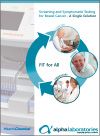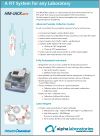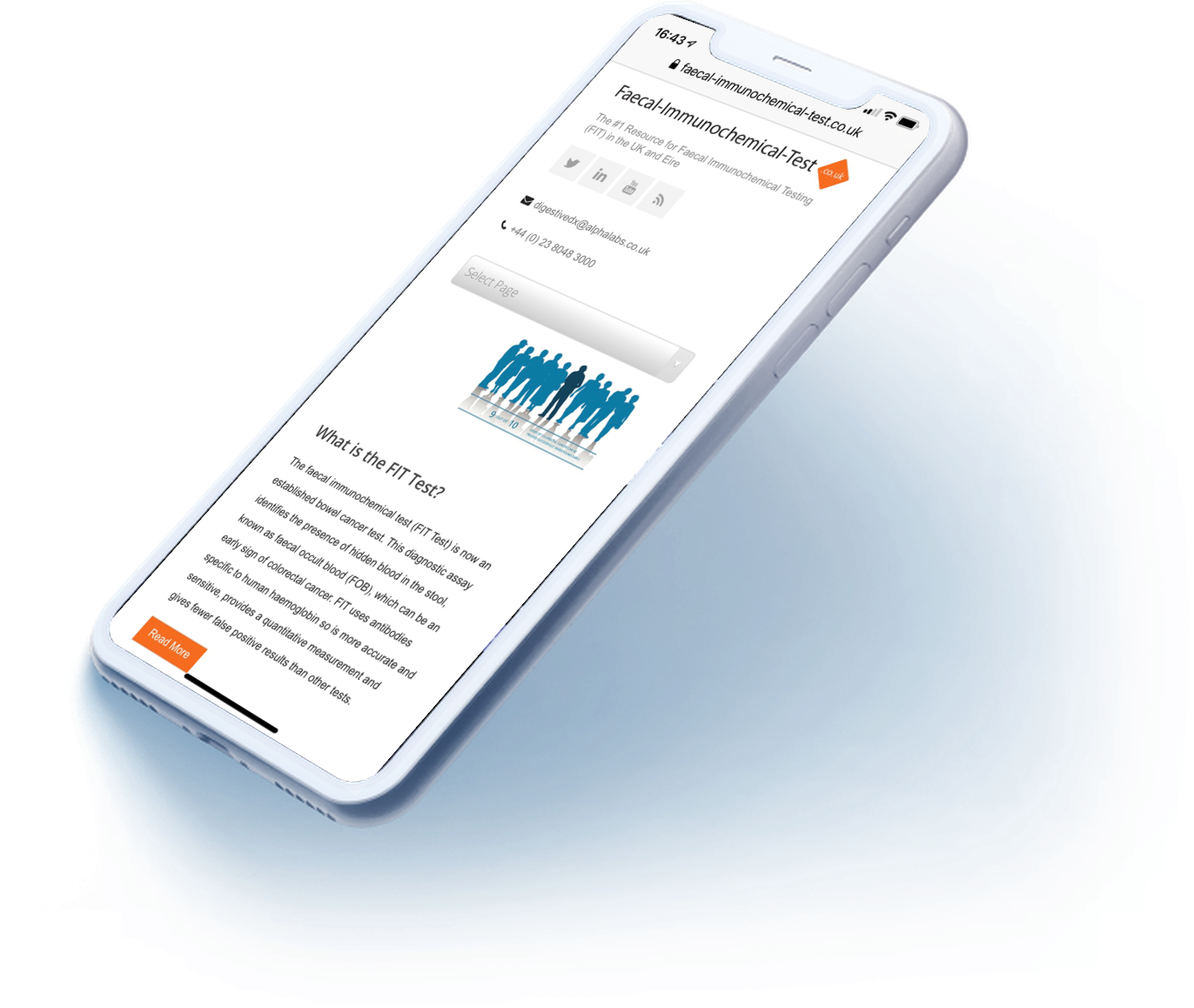Quantitative Faecal Immunochemical Testing
Triage patients with abdominal symptoms
to better manage endoscopy services and fast track high risk patients
Over recent years, the traditional guaiac based faecal occult blood tests (gFOBT) for screening have been replaced with Faecal Immunochemical Tests for haemoglobin (FIT), which provide better analytical sensitivity and specificity for human haemoglobin and are superior in detection of adenomatous polyps as well as colorectal cancers (CRC).
Many publications also advocate the use of FIT in the assessment of symptomatic patients, demonstrating its use as a “rule-out” test with benefits to clinicians, laboratories and patients. It can be used to triage patients presenting with abdominal symptoms as a step in the patient pathway to help manage colonoscopy resources more efficiently.
Laboratories who embrace the newer technology of FIT can provide a more proactive service to their community whilst embracing the productivity benefits of an automated system.
NICE DG56 - Updated Guidelines 2023
The National Institute for Health and Care Excellence (NICE) has just updated the Diagnostic Guidelines for FIT, with DG30 being replaced by DG56. The guideline highlights the diagnostic accuracy, clinical utility, and cost effectiveness of the HM-JACKarc, making it an ideal fit for the colorectal cancer referral pathway.
It is expected that this new guideline will:
Reduce the number of colonoscopies performed
Help triage patients to prioritise those most at risk of colorectal cancer
Reduce waiting lists for colonoscopies
Lead to improved consistency of best practice across the country
Lead to better health outcomes and care experience
NICE DG30 Recommends FIT
Quantitative FIT (qFIT) results have demonstrated greater sensitivity for cancers and high risk adenomas than guaiac and it is accepted that increasing detection levels of faecal haemoglobin (f-Hb) are indicative of increased risk of pathology.
Many studies examine the usefulness of measuring faecal haemoglobin quantitatively in those presenting with symptoms. In this setting, FIT reduces the burden of colonoscopy in a similar way that calprotectin testing has, when FIT is adopted as a routine test for the symptomatic.
NICE Guidance DG30 “Quantitative faecal immunochemical tests to guide referral for colorectal cancer in primary care” was published in July 2017, following evidence based reviews. This recommends quantitative faecal immunochemical tests for adoption in primary care to guide referral for suspected colorectal cancer in people without rectal bleeding who have unexplained symptoms but do not meet the criteria for a suspected cancer pathway referral outlined in NICE's guideline on suspected cancer. NICE confirms that results should be reported using a threshold of 10 micrograms of haemoglobin per gram of faeces.
The new NICE guidance states that ...
...[FIT] assays were also cost effective when compared with no triage, with the HM-JACKarc dominating (that is, it was more effective and less expensive)"
5.2 The committee discussed the potential benefits that may be associated with using faecal immunochemical tests in primary care. It heard from clinical specialists that faecal immunochemical tests are thought to be more accurate than guaiac-based faecal occult blood tests because they use immunochemical detection methods that are specific to human haemoglobin.
They are also suitable for use with automated analysers, which allow high-throughput batch testing.
It also heard from a patient specialist that faecal immunochemical tests often had sample collection devices that are easier to use than guaiac-based faecal occult blood tests and they need fewer samples, which makes them more acceptable to people and so may increase test uptake.
The committee concluded that faecal immunochemical tests may have substantial analytical and practical advantages over guaiac-based faecal occult blood tests.
The Complete Solution for Your FIT Service



HM-JACKarc for Automated FIT
The HM-JACKarc system is easy to set up and can be loaded with up to 80 samples at any one time. It can stand alone or be linked to the LIS, allowing flexible options for connectivity and full audit trail of results, QC and reagent lot numbers.
Advanced Sample Collection System
The EXTEL HEMO-AUTO MC Collection Picker is a dedicated collection device for patient faecal samples. It is easy and hygienic to use and collects a consistent sample size across different faecal matter.
Bespoke FIT Kits
Management of FIT services varies across different providers. Customised FIT Kits provide patients with clear, easy-to-follow guides to help them collect a good and return a good quality sample.
Literature
-

NICE DG56 vs. NICE DG30
18/03/24 Download: 1.36MB -

FIT for All
Screening and Symptomatic Testing for Bowel Cancer - A Single Solution14/04/21 Download: 2.77MB -

A FIT system for any Laboratory
HM-JACKarc Technical Flyer
14/04/21 Download: 8.79KB -

Diagnostics for Digestive Health Management
08/06/23 Download: Read the e-mag
Case Studies
-

Partnership with the NHS Award
08/04/22 Download: 17.58KB -

The Evolving Use of Faecal Immunochemical Testing - Accelerated by the COVID-19 Pandemic
14/04/21 Download: 5.95KB -

FIT Negative Follow-Up: Dr. James Turvill, Consultant Gastroenterologist, York Teaching Hospital NHS Foundation Trust
14/04/21 Download: 10.11KB
Publications
There are an extensive range of publications available regarding Faecal Immunochemical Testing. Our dedicated FIT site has a library of resources which includes materials covering NICE guidance , screening, symptomatic testing and guides from Cancer Research UK.
Visit the dedicated Faecal Immunochemical Test website
Access a wide range of literature, publications, case studies and videos, plus all the latest news at www.faecal-immunochemical-test.co.uk









